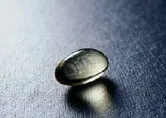Low levels of 'sunshine vitamin' could be a sign of illness, rather than a cause, studies suggest
WebMD News from HealthDay

By Serena Gordon
HealthDay Reporter
THURSDAY, Dec. 5, 2013 (HealthDay News) -- Low levels of vitamin D have been implicated as a potential cause of diseases ranging from cancer to diabetes. Now an extensive review suggests it's really the other way around: Low levels of the "sunshine vitamin" are more likely a consequence -- not a cause -- of illness.
In their review of almost 500 studies, the researchers found conflicting results. Observational studies, which looked back at what people ate or the kinds of supplements they took, showed a link between higher vitamin D levels in the body and better health.
But, in studies where vitamin D was given as an intervention (treatment) to help prevent a particular ailment, it had no effect. The one exception was a decreased death risk in older adults, particularly older women, who were given vitamin D supplements.
"The discrepancy between observational and intervention studies suggests that low [vitamin D] is a marker of ill health," wrote review authors led by Philippe Autier, at the International Prevention Research Institute, in Lyon, France.
Vitamin D is known to play a key role in bone health. Low levels of vitamin D have been found in a number of conditions, including heart disease, autoimmune diseases, diabetes, cancer and Parkinson's disease. These findings may explain why so many Americans are currently taking vitamin D supplements.
It's nicknamed the sunshine vitamin because the body produces vitamin D when exposed to the sun (if someone isn't wearing sunscreen). It's also found in some foods, such as egg yolks and fatty fish, and in foods that have been fortified with vitamin D, such as milk.
The current review, published online Dec. 6 in The Lancet Diabetes & Endocrinology, looked at 290 observational studies. In these studies, blood samples to measure vitamin D levels were taken many years before the outcome of the study occurred. The review also included results of 172 randomized clinical trials of vitamin D. In randomized trials, some people receive a therapy while others do not.
The observational studies showed a potential benefit from vitamin D. For example, vitamin D was associated with a 58 percent reduced risk of cardiovascular events, a 38 percent decreased risk of diabetes and a 34 percent decreased risk of colon cancer in these studies.
But, when the researchers looked to the randomized clinical trials that used vitamin D as a treatment, they failed to find any effect on disease occurrence or severity from raising vitamin D levels.
However, vitamin D did reduce the risk of dying from any cause in older people taking 800 international units a day, according to the review.
Dr. Shaun Jayakar, an internal medicine and geriatric specialist from St. John Hospital and Medical Center in Detroit, said the findings in elderly people "are likely due to a reduction in falls and fractures. Supplementing with vitamin D would lead to stronger bones, which would reduce falls and factures."
source : Vitamin D Supplements Won't Help Prevent Disease: Review








